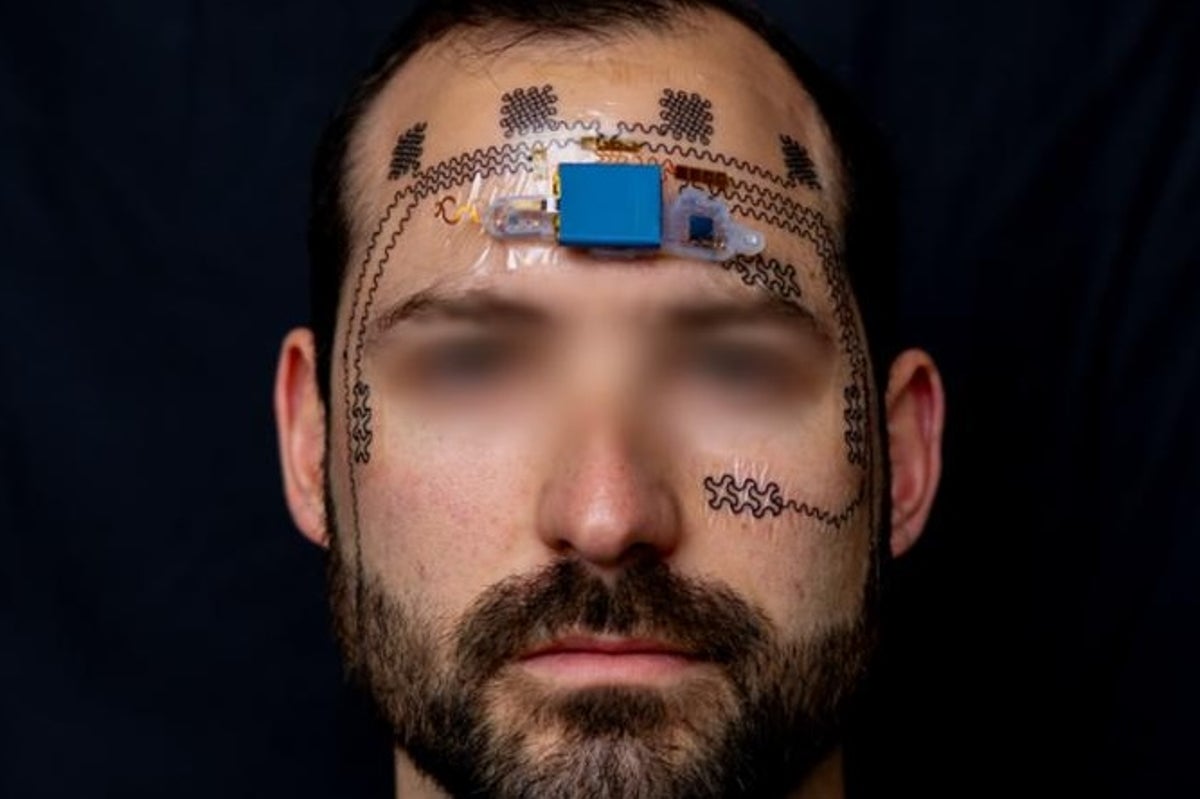
A newly developed face tattoo can see when the brain is working too hard – which it probably is, according to the researchers who developed it.
The new electronic device sits on the face and is able to measure mental strain, without the bulky headgear that might traditionally be used.
The researchers who created it suggest that the technology could be used to track the mental workload of air traffic controllers, trick drivers and others who are required to keep intense concentration for long periods of time.
Everyone works best by balancing the intensity of their thinking, ensuring that they are neither overwhelmed or bored. But it can be difficult to find that balance, and current work depends largely on a long study taken by participants after they have completed a task.
"Technology is developing faster than human evolution. Our brain capacity cannot keep up and can easily get overloaded," said Nanshu Lu, the study's author, from the University of Texas at Austin (UT Austin). “There is an optimal mental workload for optimal performance, which differs from person to person.”
Researchers hope the “e-tattoo” can help. It works by analysing electrical activity from the brain and eye movements. Doing so usually requires a complex cap attached by dangling wires, but the tattoo is a lightweight battery pack and sensors that stick to the skin.
The thin and stretchy nature of the sensors means that they can fit around face shape of the person wearing it. That could mean that the results are actually better than those complicated and bulky caps, the creators say.
“What’s surprising is those caps, while having more sensors for different regions of the brain, never get a perfect signal because everyone’s head shape is different,” said Lu. “We measure participants’ facial features to manufacture personalized e-tattoos to ensure that the sensors are always in the right location and receiving signals.”
To test the system, researchers put the tattoo on six participants who were then set a memory challenge that got progressively harder. As it did so and their mental load increased, the researchers could see the effects: theta and delta brainwaves increased, suggesting they were experiencing cognitive demand, and alpha and beta activity increased in line with their fatigue.
Researchers hope those same methods can be used to understand when the brain is struggling. It might also be able to predict when that is happening, by helping train a computer model that can predict the load of a given activity.
The research is described in a new paper, ‘A Wireless Forehead E-tattoo for Mental Workload Estimation’, published in the journal Device.







